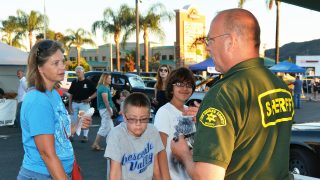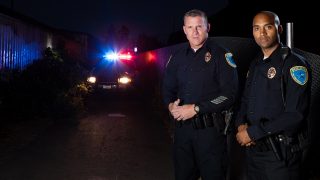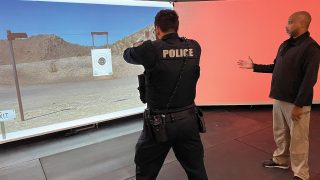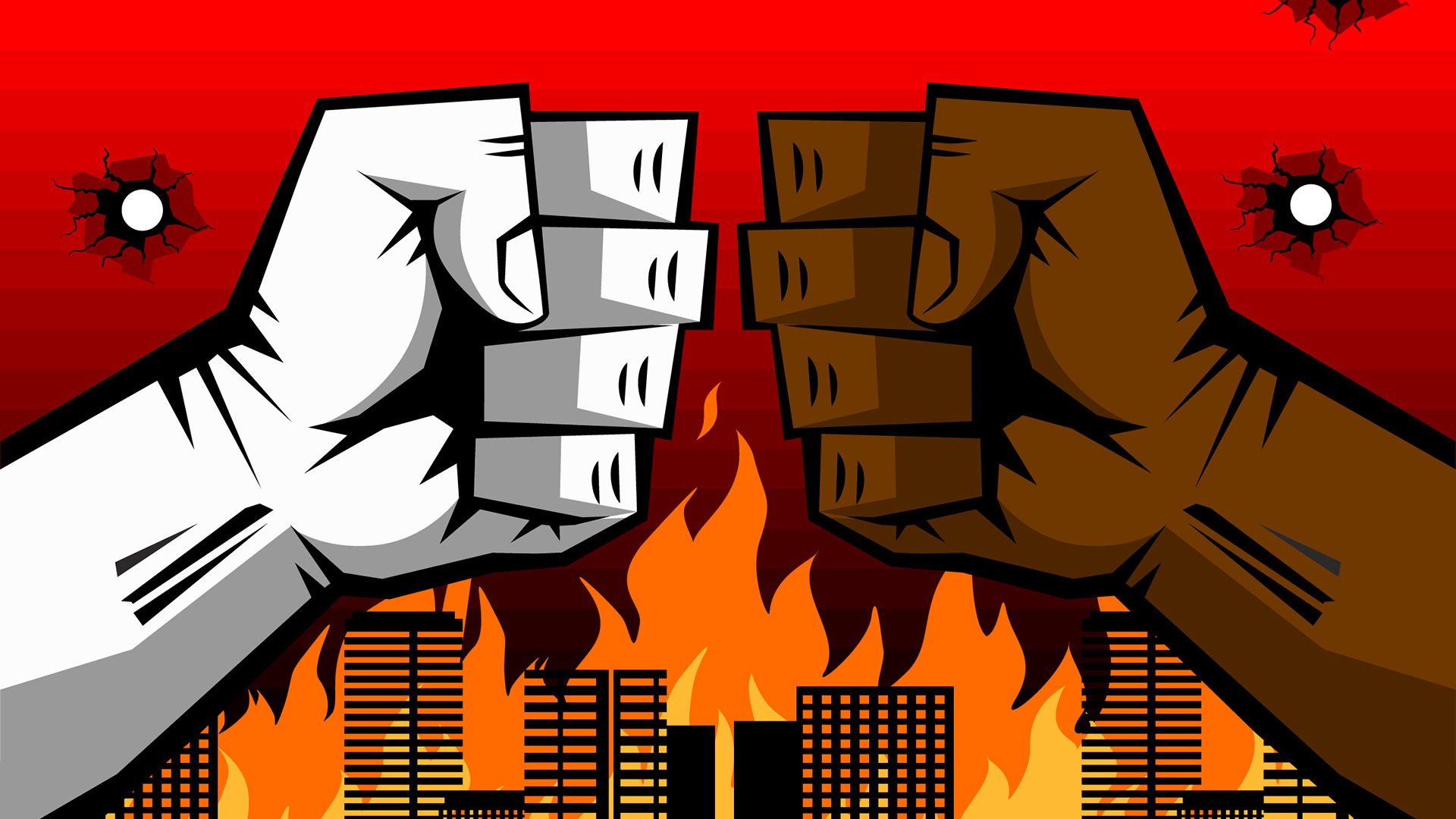
Like most students who attend the FBI National Academy, I had the opportunity to spend a day at the Holocaust Museum. The National Academy is an FBI program that brings together law enforcement leaders from all over the world to hone their skills and discuss the issues that face the profession. For me, the Holocaust Museum tour was the most significant trip of the NA experience. It was haunting, but my hours spent there drove home the fact that freedom and civility aren’t a given. It showed me that it’s entirely possible for governmental systems to become so corrupt that they subjugate (or even exterminate) entire groups of people.
After the museum tour, we gathered in a large auditorium to attend a lecture by a representative of a civil rights organization. The lecture started with a very thought-provoking presentation about the various ways that law enforcement officials in World War II Germany responded to the rise of the Nazi Party. The presentation, though, was followed by a discussion. A few minutes into the discussion portion, it became very obvious that the speaker was not there to facilitate dialogue, but rather to fulfill a pre-determined agenda.
At one point, she flashed some statistics onto the presentation screen that suggested a majority of the population didn’t trust those of us in the law enforcement profession. She went on to point out that distrust was even greater in minority communities. She then began pressing those of us in the audience to respond as to what we thought about the notion.
The nation is so polarized that no one wants to have an actual conversation about the very complicated state of the issues.
What ensued thereafter was, for me, unexpected. One person raised his hand and then responded that he questioned whether her assertion that the majority of the population distrusts law enforcement was actually true. Another responded along the same lines, pointing out that she was misrepresenting the statistics in the study she quoted. People began speaking over each other, voices were raised and the atmosphere morphed away from the collegial mood that had dominated up to that point. Finally, I noticed one law enforcement official (who was Black) raising her hand and shifting about impatiently in her chair. As the moments passed and she wasn’t given the opportunity to speak, she shouted out over the rest of the group something to the effect of: “There is a problem! I’m Black and I’m telling you there is a problem with how Black people view the police!”
The interaction probably only lasted a minute or two, but it bothered me for days. This wasn’t just raised voices; it was shouting, pure passion on both sides of the conversation born out of years of frustration. When it started, I felt the immediate, almost irresistible urge to get up and walk out. I could scarcely stand to be in that room once the yelling started. The tension created by such a contentious issue was profound and made the chance of any meaningful discussion impossible. I found myself uncharacteristically upset, and I spent the next few days trying to figure out just what it was that had rubbed me so raw.
It wasn’t the shouting. I’d seen cops argue with one another before. That’s what brothers and sisters do. Perhaps it was the fact that this all happened several years after Ferguson, when I was still adjusting to the newfound knowledge that everyone didn’t view my profession as a noble one (the way I did). But that, too, seemed inadequate to explain why the interaction upset me so.
A few days later, now on a weekend trip back home, I finally discerned the source of my consternation. As viscerally upsetting as it was for me to see my fellow law enforcement professionals yelling at or over each other, their actions were rooted in a genuine passion for their respective points of view. The irony is that the “opposing parties” in the shouting match weren’t really opposed at all. Some people were arguing against a narrative they’d been faced with for the last several years: that most cops are a bunch of racists who are universally distrusted. The other party was demanding there be an acknowledgment that communities of color have a more negative perception of law enforcement than their white counterparts. I assume that she probably also wanted to discuss why this was so.
These are two different positions that could be discussed in two different debates. They aren’t diametrically opposed to each other. One group was pushing back against a single-minded, politically driven narrative that was proffered by the presenter. It’s one that’s been pushed (usually without the support of actual evidence) for the last several years. They were defending their profession and their officers against slander; that’s a noble thing. The other party was calling for recognition that members of a community of which she is a part have a more generally negative perception of law enforcement. She was obviously right as well. Furthermore, her membership in that community, coupled with her years of law enforcement experience, put her in a unique position to weigh in on the situation. You can believe both of these things at the same time. These positions are not mutually exclusive.
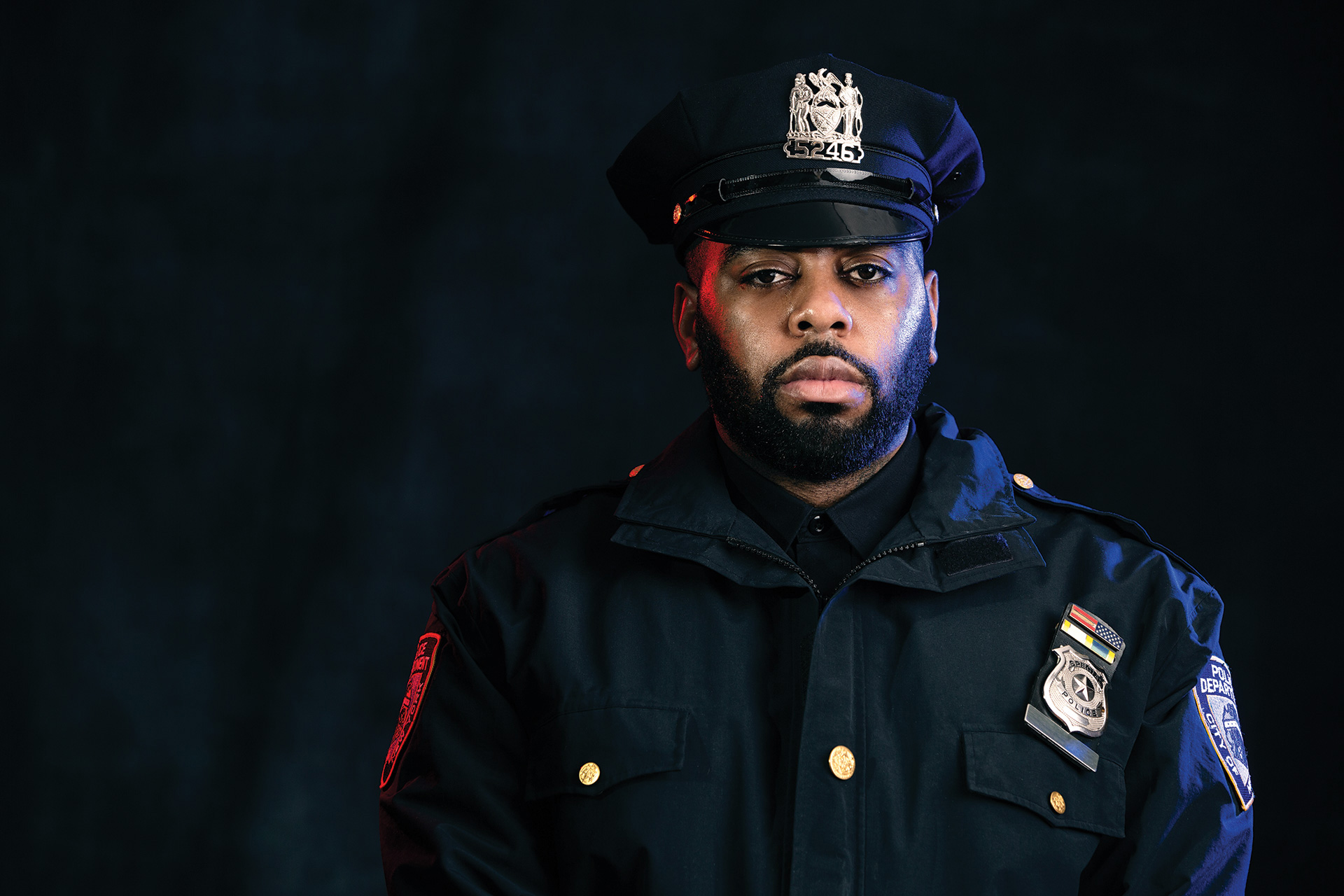
What I finally realized about my aversion to the situation was this: It had nothing to do with the points of view expressed. It had everything to do with the situation we were all put in. I don’t necessarily disagree with either of the points of view. In fact, I embrace them both.
What I did disagree with was the situation that the presenter forced us into. What made that situation even worse was that it was illustrative of the position those in law enforcement have found themselves in for the last several years.
When a police officer investigates a case, both sides typically want the officer to be “on their side.” In the vast majority of situations, we can’t do that. We don’t pick sides. We zealously seek the truth. The truth usually doesn’t fall neatly onto Side A or Side B. It’s usually complicated and somewhere in the middle. It’s often elusive. Those of us who have sworn an oath to seek out the truth, to not take sides, to seek honor above alliances, know that the truth is rarely something simple that can be fit into a soundbite or a party platform.
Unfortunately, politics work very differently, and the world is all about politics. Politics rarely care about the fine points of logic needed to solve a problem. No, platforms and broad strokes are the tool of politics, and that’s what bothers me the most about what happened at that seminar. For the past several years, many politicians and special interest groups have grappled to exploit the boiling racial tensions in our nation for their own ends, no matter who got hurt. Cops have been killed and neighborhoods have been destroyed. Members of minority communities have gotten hurt, too. Nobody profits by a riot. The nation is so polarized that no one wants to have an actual conversation about the very complicated state of the issues. It is check A or B. You’re either for us or against us. Pick our side or else.
The presentation our class attended was purposely timed and designed to put us all into a box, not to facilitate a productive discussion. The National Academy draws its classes from the most promising leaders in the law enforcement community. Some of the brightest minds in the profession, many with extensive experience dealing with the very issues being discussed, were gathered into one place. But we weren’t there to discuss solutions, we were there to be told how to think. We were told to check a certain box. The material in the presentation was purposely designed to be manipulative and fit into one “side” or another at the expense of the hard, often complicated truth. The speaker pointed out that a recent poll about community trust in law enforcement showed that “only” X% of the population had a high level of trust. She made no mention of the percentage that had “some trust.” She made no mention of the percentage who had “a lot of trust,” or whatever the poll actually said. By only showing us the very highest level, she made the results of the poll fit into the desired end goal of her presentation. She purposely only showed part of the statistics, making it appear that a majority of Americans don’t trust law enforcement. She was able to say this without outright lying by a deceptive use of semantics. This is a common way to make statistics say what one wants them to say.
The presentation was also purposely put on right after the incredibly emotional experience of the museum tour. It was obviously meant to be done at a time when people were emotionally vulnerable. This particular civil rights organization has a track record of doing some wonderful things, but on that day, they fell into the trap of claiming a side and asking us to check their box. As it always is, this was done at the expense of actual dialogue and potential solutions.
Like many of my fellow law enforcement officers, I have a great deal of patience with many things, but I don’t like being manipulated. I don’t like being asked to just blindly believe what I’m told. I want to get as close to the truth as I can, by rational thinking and hard work. The greatest danger of simply “picking a side” of a political aisle is that we usually forgo any opportunity to find real, workable solutions.
The reality of our present situation is that it’s complicated and difficult. There are no easy answers. There are minorities who have been mistreated by cops, and there are some people who would use the issue of racism to further their own goals. There are cops who have given their very lives in the defense of members of minority communities, and there are some who have used the badge to express dark hatred in their hearts. We are talking about millions of people over hundreds of years and billions of interactions. Throw in all the other societal groups and factors, and there are certainly no easy answers. The truth of the situation certainly doesn’t fit neatly into one “side” or the other.
The only true answers, I think, lie in the changes (and the relationships) we strive for in our own communities. As a police chief in the South, I was in a position of influence in my community. I felt an enormous burden to do what I could to help address the challenges facing our society where I could. I did what I could and hope that some of my efforts had some positive results. But the one thing, in all this uncertainty, that I’m positively sure of is that I’ve never been Black in America. I never will be, and I’ll never really know what that’s like. I’ve always told people that’s why it’s so important for me to talk to folks who are and learn their point of view. I’ve tried to practice that, and I really believe it. That type of discussion can’t take place in a “pick a side” political environment that’s more about scoring points than honest dialogue.
The answers to these issues lie in true, honest dialogue, no matter how painful that might be. That’s probably the most frustrating part about that seminar for me. When the shouting started, I shut down. I suspect that I wasn’t the only one. The conversation derailed because of the “pick a side” approach of the presentation. Any chance for real dialogue disappeared. I’m sorry it did, because that’s probably just when we could have all started learning something very meaningful.
As seen in the January 2022 issue of American Police Beat magazine.
Don’t miss out on another issue today! Click below:


